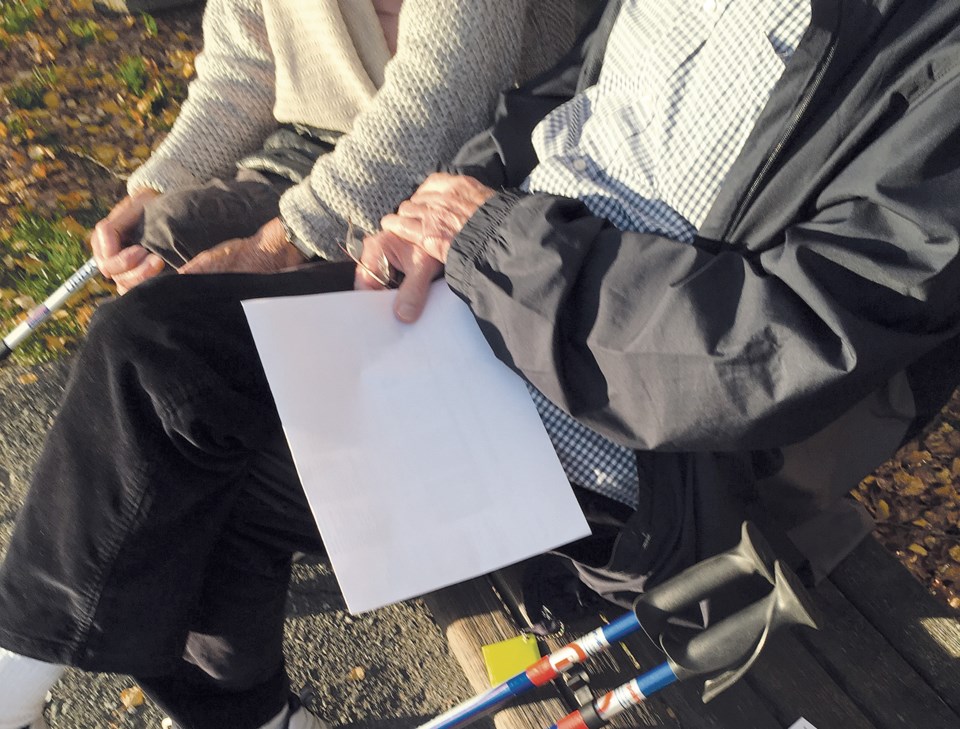What is the difference between Alzheimer’s disease and dementia?
This is the most common question Bronwyn James is asked when she leads presentations about the subject.
An education co-ordinator with the North Shore office of the Alzheimer Society of B.C., James explains: the short answer is there is no difference between Alzheimer’s disease and dementia.
“Alzheimer’s is one of the leading causes of dementia,” she says, adding dementia is a word for a set of symptoms, not a specific disease. There are about 52 different causes of those symptoms, including Alzheimer’s disease and vascular disease. Some of those conditions are very rare, she notes, but all of them are progressive and none of them have a cure at this time.
There are many misconceptions about dementia, notes James. Part of her work includes education for people living with dementia, as well as their family and friends.
“People live many years quite well with dementia, they’re still out there in the communities, they can still be working, they can still be driving, active in their communities, but they do have some impairment that they’re learning to live with,” she explains.
January was Alzheimer’s Awareness Month across Canada, and the North Shore branch of the Alzheimer Society is participating in a new initiative to create dementia-friendly communities. Part of the program involves an education component called Dementia Friends, which features workshops in the community and information online to help community members who may not be directly affected by dementia learn how they can help.
Creating a broader understanding is important for both those with the condition and their support circles.
“I think people are reluctant to reach out and help or to offer to spend time with someone because of their fear of what might happen,” says James, referring to some of the misconceptions of people with dementia, such as that they may be aggressive, which isn’t true in most cases. “People could continue to live a lot longer in their community and in their homes and do a lot better if there was more support from family, friends, neighbours, members of the community.”
Alzheimer’s disease is not an illness that can be managed just by one or two family members, she says.
“It is a tough illness to manage without supports in place,” explains James. “Statistics show that family caregivers burn out considerably earlier and more than any caregiver for any other illness.”
The Alzheimer Society aims to provide education and support to encourage community members to show their support for people affected by dementia, so it’s not just about those who are living with the condition.
Think about who you might know in your community, your family, your circle of friends, your neighbours, and people around your workplace who might be impacted by a dementia, asks James. Then think about how you might be able to lend a hand.
“If you are affected personally or someone in your family has a dementia you’re in there, you’re now on this journey, but it can be isolating, so what we want is for everyone to start thinking about who they know or (are) associated with who might be living with dementia and they’ve been afraid to maybe reach out or to say anything or to ask some questions or even to learn a bit more about what dementia is and how they might be able to support that person,” she says.
Among other education and support programs, the North Shore office offers six support groups for family caregivers, as well as two support groups for people with early symptoms of dementia. There is also a weekly Minds in Motion program for people with mild to moderate symptoms and a care partner, which features physical exercise, socialization, and an activity to stimulate thinking. “It’s really a total workout for the person with memory loss,” says James.
Preferably, clients and their families should be referred to the office by their doctors, but they may also contact the group directly.



